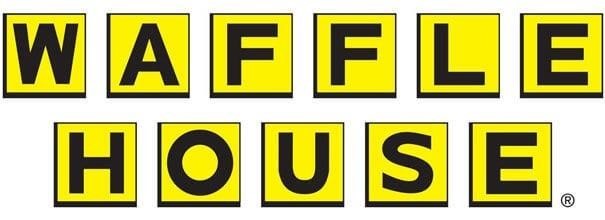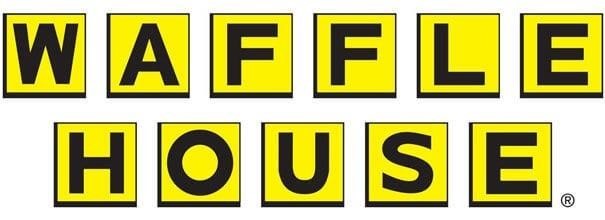

Nutrition facts and Weight Watchers points for White Toast from Waffle House.
Calories
There are 230 calories in White Toast.
Nutrition Facts
| Serving Size | 1 order | |
| Calories | 230 | |
| Calories From Fat | 117 | |
| Amount Per Serving | % Daily Value* | |
| Total Fat | 13g | 20% |
| Saturated Fat | 5g | 25% |
| Trans Fat | 0g | |
| Cholesterol | 0mg | 0% |
| Sodium | 370mg | 15% |
| Total Carbohydrates | 26g | 9% |
| Dietary Fiber | 1g | 4% |
| Sugars | 3g | |
| Protein | 4g | 8% |
| Vitamin A | ? | |
| Vitamin C | ? | |
| Calcium | ? | |
| Iron | ? | |
*All percent daily value figures are based on a 2,000 calorie diet.
Nutritional information source: Waffle House
Allergens
We are working on getting the allergen information for this item.
Ingredients
We are working on getting the ingredients for this item.
Additional Information
When it comes to breakfast options, Waffle House has become a popular choice for many people. One of their offerings is the classic White Toast, a simple yet satisfying addition to your morning meal. In this expert article, we will delve into the features, benefits, and drawbacks of Waffle House White Toast to help you make an informed decision about your breakfast choices.
Features & Benefits
- Calorie Content: Waffle House White Toast contains approximately 230 calories per serving. This information is important for individuals who are concerned about their caloric intake and are looking for a breakfast option that meets their dietary goals.
- Macronutrient Composition: Each serving of White Toast provides 13 grams of total fat, including 5 grams of saturated fat. It also provides 26 grams of carbohydrates, including 1 gram of fiber and 3 grams of sugars. It also contains 4 grams of protein. Understanding the macronutrient composition of White Toast can help individuals track their nutrient intake and make more informed dietary choices.
- Low Cholesterol: A notable feature of Waffle House White Toast is its lack of cholesterol. With zero milligrams of cholesterol per serving, it may be an appropriate option for individuals following a low cholesterol diet or those with specific dietary restrictions.
Benefits:
- Convenience: Waffle House White Toast is readily available and can be a convenient choice for people on the go or looking for a quick breakfast option. It is served at Waffle House restaurants, making it easy for customers to incorporate it into their morning routine.
- Versatility: White Toast can serve as a versatile base for a variety of toppings and spreads. Whether you prefer classic butter and jam or more adventurous options like avocado or smoked salmon, you can customize your White Toast to your taste.
- Moderate calories: At 230 calories per serving, Waffle House White Toast can be a reasonable choice for those looking to maintain or manage their weight. It provides a satisfying breakfast option without excessive caloric intake, allowing for flexibility in meal planning.
Disadvantages:
- Limited nutritional profile: While White Toast can be a tasty addition to your breakfast, it may not provide a comprehensive range of essential nutrients. It is relatively low in fiber, vitamins, and minerals compared to other breakfast options that contain whole grains or nutrient-dense ingredients. Therefore, it is important to consider the overall nutritional balance of your meals throughout the day.
- High carbohydrate content: White Toast contains 26 grams of carbohydrates per serving, including 3 grams of sugar. Individuals on low-carbohydrate or low-sugar diets may need to consider alternative breakfast options to better meet their dietary goals.
- Lack of allergen information: As mentioned on the website, allergen information for Waffle House White Toast is currently unavailable. This can be a drawback for individuals with food allergies or sensitivities who rely on accurate allergen information to make safe and informed choices.
Conclusion
Waffle House White Toast offers a convenient and versatile breakfast option with a moderate caloric content. It can be enjoyed with a variety of toppings and spreads, allowing for customization based on personal preference. However, it is important to note the limited nutritional profile and relatively high carbohydrate content of White Toast, as well as the lack of allergen information. As with any food choice, it is recommended that you consider your individual dietary needs and goals when incorporating Waffle House White Toast into your breakfast routine.
Questions and Answers
Is Waffle House White Toast a healthy breakfast choice?
Waffle House White Toast can be a part of a balanced breakfast. While it provides convenience and moderate calorie content, it is important to consider its limited nutritional profile. It is recommended to incorporate a variety of nutrient-dense foods into your overall diet for optimal health.
Can I customize my Waffle House White Toast with different toppings?
Absolutely! Waffle House White Toast serves as a versatile base for various toppings and spreads. Whether you prefer classic options like butter and jam or more adventurous choices like avocado or smoked salmon, feel free to personalize your White Toast to suit your taste preferences.
Does Waffle House White Toast contain any allergens?
The allergen information for Waffle House White Toast is currently unavailable. If you have food allergies or sensitivities, it is advisable to exercise caution and consult with the restaurant staff or choose an alternative breakfast option that provides clear allergen information.
Can I include Waffle House White Toast in my weight management plan?<br>
</br>
Waffle House White Toast can be a reasonable choice for individuals aiming to maintain or manage their weight. With 230 calories per serving, it provides a satisfying breakfast option without excessive calorie intake. However, it is important to consider the overall balance of your meals and include a variety of nutrient-rich foods.
Is Waffle House White Toast suitable for individuals following a low-carbohydrate diet?
Waffle House White Toast contains 26 grams of carbohydrates per serving, including 3 grams of sugars. If you are following a low-carbohydrate or low-sugar diet, you may need to consider alternative breakfast options that align better with your dietary goals.